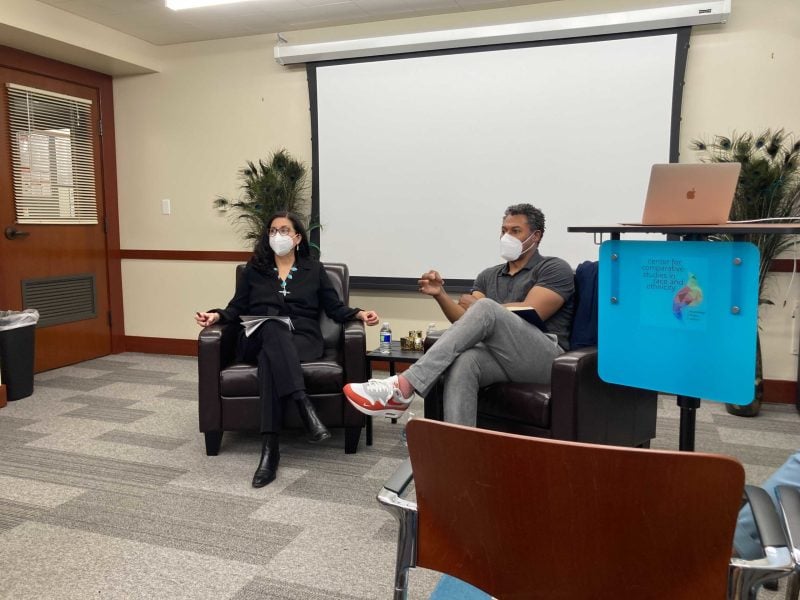Stanford professor of organizational behavior and trained social psychologist Brian Lowery stressed the importance of examining intersectional identities in conversations about race and gender during a Center for Comparative Studies in Race and Ethnicity (CCSRE) Faculty Seminar event on Thursday.
Lowrey’s research primarily focuses on gender backlash, which he defined as the “social and economic penalties people face when they are perceived to violate gender roles,” and how gender backlash affects racial groups differently.
During the discussion, Lowrey presented several case studies involving gender backlash to demonstrate how it is enforced within certain racial groups. He discussed the case of Christine Blasey-Ford and Anita Hall, two women who are well-known for speaking out against men in power who allegedly sexually harassed them. Lowrey explained that Blasey-Ford, a white woman, experienced greater gender backlash than Hill, a Black woman, and rationalized this view by explaining that white women are often perceived by society as more feminine than Black women. Therefore, when they speak out, they are viewed to be violating gender norms, he contended.
“The idea here is that with racialized gender stereotypes, nobody should express backlash to [Hill],” he said. “She’s doing what Black women do: being aggressive, making accusations. From that perspective, no one should express backlash.”
Lowrey explained, however, that gender backlash is specifically related to violating gender norms, and does not constitute the only type of harm done to a person. “In essence, racism is protecting you from sexism,” Lowrey said. “I don’t want people to interpret it as Black women having it easier.”
Lowrey also touched on how the concept of gender backlash applies to people who are non-binary or bi-racial, explaining that someone’s gender and race are largely dependent on other people’s perceptions of them. He added that social identities are conditional, “meaning you could honestly be Black in one setting and white in another.” Rather than being fixed, identities such as race and gender are “active with you in that moment,” he said.
During the discussion portion of the event, Center for Comparative Studies in Race and Ethnicity Communications and Events Associate Perlita Dicochea supported Lowrey’s theory of racial backlash, explaining that the hostility she has experienced as a Latina woman by people outside of her racial group often outweighs people’s perceptions of her as a woman.
“Outside of your racial group, you’re completely excluded,” Perlita said. “That’s a kind of backlash where you’re just completely off written in certain settings, situations or institutions.”
Lowrey emphasized the importance of defining oneself within the various communities that individuals belong to, explaining that the way in which people identify themselves affects both self-perceptions and other people in their community.
“What you’re doing when you’re making any claim about yourself — you’re making a request of other people,” he said. “Any claim you make about your social identity is a request of other people.”
